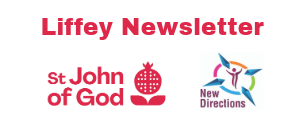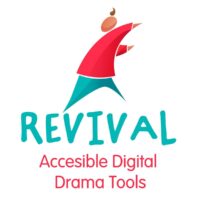NEWS & PROJECTS
News & Projects
 Each month the newsletter will focus on one of these supports and showcase success stories from people across Liffey Services, identifying how these supports are being exercised or provided. The support chosen for this newsletter is “Support for making choices and plans”. Inside you will read how people are being supported to live good lives, fulfill meaningful roles in their lives and improve their overall quality of life. What is New Directions? New Directions is a HSE Report that was launched in 2012 following a review of day services in Ireland. The purpose of the review was to see what was working well and what needed to be improved. The New Directions report states that day services should be person centered and support people to be active citizens. Following the report the New Directions interim standards were launched in 2015. These standards outline what supports should be in place to enable people to live a life of their choosing.
Each month the newsletter will focus on one of these supports and showcase success stories from people across Liffey Services, identifying how these supports are being exercised or provided. The support chosen for this newsletter is “Support for making choices and plans”. Inside you will read how people are being supported to live good lives, fulfill meaningful roles in their lives and improve their overall quality of life. What is New Directions? New Directions is a HSE Report that was launched in 2012 following a review of day services in Ireland. The purpose of the review was to see what was working well and what needed to be improved. The New Directions report states that day services should be person centered and support people to be active citizens. Following the report the New Directions interim standards were launched in 2015. These standards outline what supports should be in place to enable people to live a life of their choosing.
 St John of God Liffey Services is excited to collaborate on the SAID project, a pioneering initiative that trains individuals with disabilities to become School Assistants for Digital Education in the educational sector. This project underscores the principle that everyone possesses unique expertise, fostering a community where mutual learning and equal participation are paramount. By integrating individuals with learning difficulties as active participants in the project and serving as school assistants for digital education, the SAID project exemplifies vocational inclusion. This initiative introduces:
St John of God Liffey Services is excited to collaborate on the SAID project, a pioneering initiative that trains individuals with disabilities to become School Assistants for Digital Education in the educational sector. This project underscores the principle that everyone possesses unique expertise, fostering a community where mutual learning and equal participation are paramount. By integrating individuals with learning difficulties as active participants in the project and serving as school assistants for digital education, the SAID project exemplifies vocational inclusion. This initiative introduces:
- A cutting-edge curriculum for developing School Assistants for Digital Education within vocational education and training.
- New career paths for people with disabilities.
- A step towards a more inclusive society.
 The Right To Connect (RTCN) project upskilled people with intellectual disabilities to become co-designers and produce accessible learning platforms and courses to help them and their peers to be more included in the digital world. This project, running from May 2022 to March 2024 with ten partners from seven countries, is building on previous projects, ENTELIS and ENTELIS+. RTCN will focus on peer co-designed courses to learn digital skills, helping people with intellectual disabilities use digital tools to speak up and be heard, and giving them chances to share their thoughts on ideas to make the digital world more accessible.
The Right To Connect (RTCN) project upskilled people with intellectual disabilities to become co-designers and produce accessible learning platforms and courses to help them and their peers to be more included in the digital world. This project, running from May 2022 to March 2024 with ten partners from seven countries, is building on previous projects, ENTELIS and ENTELIS+. RTCN will focus on peer co-designed courses to learn digital skills, helping people with intellectual disabilities use digital tools to speak up and be heard, and giving them chances to share their thoughts on ideas to make the digital world more accessible.
 The REVIVAL project, led by the Hospitaller Order of Saint John of God, is creating a new way for adults with disabilities to learn and enjoy art. Building on the success of the LET IT BE project, REVIVAL will make a digital theatre course and art pieces for these adults, shared online. This comes after COVID-19 made it hard for them to join cultural activities and for artists to reach them. These artistic programs are important for their education and skill-building, and REVIVAL aims to bridge this gap.
The REVIVAL project, led by the Hospitaller Order of Saint John of God, is creating a new way for adults with disabilities to learn and enjoy art. Building on the success of the LET IT BE project, REVIVAL will make a digital theatre course and art pieces for these adults, shared online. This comes after COVID-19 made it hard for them to join cultural activities and for artists to reach them. These artistic programs are important for their education and skill-building, and REVIVAL aims to bridge this gap.
